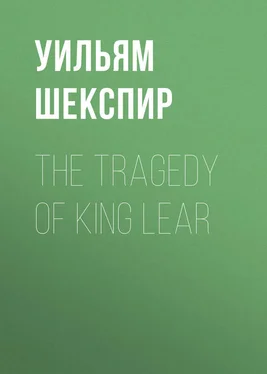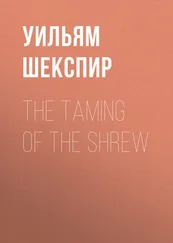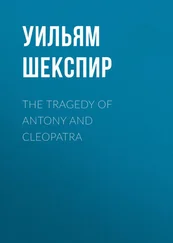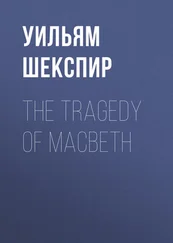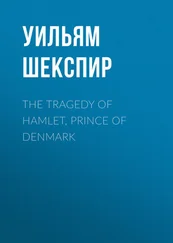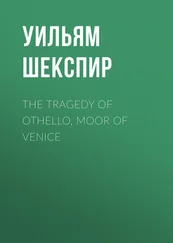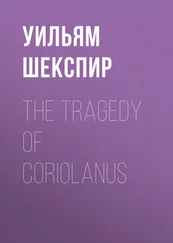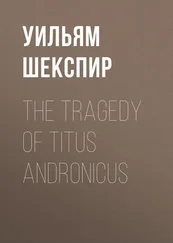Уильям Шекспир - The Tragedy of King Lear
Здесь есть возможность читать онлайн «Уильям Шекспир - The Tragedy of King Lear» — ознакомительный отрывок электронной книги совершенно бесплатно, а после прочтения отрывка купить полную версию. В некоторых случаях можно слушать аудио, скачать через торрент в формате fb2 и присутствует краткое содержание. Жанр: Европейская старинная литература, Драматургия, foreign_dramaturgy, на английском языке. Описание произведения, (предисловие) а так же отзывы посетителей доступны на портале библиотеки ЛибКат.
- Название:The Tragedy of King Lear
- Автор:
- Жанр:
- Год:неизвестен
- ISBN:нет данных
- Рейтинг книги:3 / 5. Голосов: 1
-
Избранное:Добавить в избранное
- Отзывы:
-
Ваша оценка:
- 60
- 1
- 2
- 3
- 4
- 5
The Tragedy of King Lear: краткое содержание, описание и аннотация
Предлагаем к чтению аннотацию, описание, краткое содержание или предисловие (зависит от того, что написал сам автор книги «The Tragedy of King Lear»). Если вы не нашли необходимую информацию о книге — напишите в комментариях, мы постараемся отыскать её.
The Tragedy of King Lear — читать онлайн ознакомительный отрывок
Ниже представлен текст книги, разбитый по страницам. Система сохранения места последней прочитанной страницы, позволяет с удобством читать онлайн бесплатно книгу «The Tragedy of King Lear», без необходимости каждый раз заново искать на чём Вы остановились. Поставьте закладку, и сможете в любой момент перейти на страницу, на которой закончили чтение.
Интервал:
Закладка:
A credulous father! and a brother noble,
Whose nature is so far from doing harms
That he suspects none; on whose foolish honesty
My practices ride easy! I see the business.
Let me, if not by birth, have lands by wit;
All with me's meet that I can fashion fit.
Exit.
Scene III. The Duke of Albany's Palace
Enter Goneril and [her] Steward [Oswald].
Gon. Did my father strike my gentleman for chiding of his fool?
Osw. Ay, madam.
Gon. By day and night, he wrongs me! Every hour
He flashes into one gross crime or other
That sets us all at odds. I'll not endure it.
His knights grow riotous, and himself upbraids us
On every trifle. When he returns from hunting,
I will not speak with him. Say I am sick.
If you come slack of former services,
You shall do well; the fault of it I'll answer.
[Horns within.]
Osw. He's coming, madam; I hear him.
Gon. Put on what weary negligence you please,
You and your fellows. I'd have it come to question.
If he distaste it, let him to our sister,
Whose mind and mine I know in that are one,
Not to be overrul'd. Idle old man,
That still would manage those authorities
That he hath given away! Now, by my life,
Old fools are babes again, and must be us'd
With checks as flatteries, when they are seen abus'd.
Remember what I have said.
Osw. Very well, madam.
Gon. And let his knights have colder looks among you.
What grows of it, no matter. Advise your fellows so.
I would breed from hence occasions, and I shall,
That I may speak. I'll write straight to my sister
To hold my very course. Prepare for dinner.
Scene IV. The Duke of Albany's Palace
Enter Kent, [disguised].
Kent. If but as well I other accents borrow,
That can my speech defuse, my good intent
May carry through itself to that full issue
For which I raz'd my likeness. Now, banish'd Kent,
If thou canst serve where thou dost stand condemn'd,
So may it come, thy master, whom thou lov'st,
Shall find thee full of labours.
Horns within. Enter Lear, [Knights,] and Attendants.
Lear. Let me not stay a jot for dinner; go get it ready. [Exit
an Attendant.] How now? What art thou?
Kent. A man, sir.
Lear. What dost thou profess? What wouldst thou with us?
Kent. I do profess to be no less than I seem, to serve him
truly
that will put me in trust, to love him that is honest, to
converse with him that is wise and says little, to fear
judgment, to fight when I cannot choose, and to eat no fish.
Lear. What art thou?
Kent. A very honest-hearted fellow, and as poor as the King.
Lear. If thou be'st as poor for a subject as he's for a king,
thou
art poor enough. What wouldst thou?
Kent. Service.
Lear. Who wouldst thou serve?
Kent. You.
Lear. Dost thou know me, fellow?
Kent. No, sir; but you have that in your countenance which I
would
fain call master.
Lear. What's that?
Kent. Authority.
Lear. What services canst thou do?
Kent. I can keep honest counsel, ride, run, mar a curious tale
in
telling it and deliver a plain message bluntly. That which
ordinary men are fit for, I am qualified in, and the best of
me
is diligence.
Lear. How old art thou?
Kent. Not so young, sir, to love a woman for singing, nor so
old to
dote on her for anything. I have years on my back
forty-eight.
Lear. Follow me; thou shalt serve me. If I like thee no worse
after
dinner, I will not part from thee yet. Dinner, ho, dinner!
Where's my knave? my fool? Go you and call my fool hither.
[Exit an attendant.]
Enter [Oswald the] Steward.
You, you, sirrah, where's my daughter?
Osw. So please you- Exit.
Lear. What says the fellow there? Call the clotpoll back.
[Exit a Knight.] Where's my fool, ho? I think the world's asleep.
[Enter Knight]
How now? Where's that mongrel?
Knight. He says, my lord, your daughter is not well.
Lear. Why came not the slave back to me when I call'd him?
Knight. Sir, he answered me in the roundest manner, he would
not.
Lear. He would not?
Knight. My lord, I know not what the matter is; but to my
judgment
your Highness is not entertain'd with that ceremonious
affection
as you were wont. There's a great abatement of kindness
appears
as well in the general dependants as in the Duke himself
also
and your daughter.
Lear. Ha! say'st thou so?
Knight. I beseech you pardon me, my lord, if I be mistaken; for
my duty cannot be silent when I think your Highness wrong'd.
Lear. Thou but rememb'rest me of mine own conception. I have
perceived a most faint neglect of late, which I have rather
blamed as mine own jealous curiosity than as a very pretence
and purpose of unkindness. I will look further into't. But
where's my fool? I have not seen him this two days.
Knight. Since my young lady's going into France, sir, the fool
hath much pined away.
Lear. No more of that; I have noted it well. Go you and tell my
daughter I would speak with her. [Exit Knight.] Go you, call
hither my fool.
Enter [Oswald the] Steward.
O, you, sir, you! Come you hither, sir. Who am I, sir?
Osw. My lady's father.
Lear. 'My lady's father'? My lord's knave! You whoreson dog!
you
slave! you cur!
Osw. I am none of these, my lord; I beseech your pardon.
Lear. Do you bandy looks with me, you rascal?
[Strikes him.]
Osw. I'll not be strucken, my lord.
Kent. Nor tripp'd neither, you base football player?
[Trips up his heels.
Lear. I thank thee, fellow. Thou serv'st me, and I'll love
thee.
Kent. Come, sir, arise, away! I'll teach you differences. Away,
away! If you will measure your lubber's length again, tarry;
but
away! Go to! Have you wisdom? So.
[Pushes him out.]
Lear. Now, my friendly knave, I thank thee. There's earnest of
thy
service. [Gives money.]
Enter Fool.
Fool. Let me hire him too. Here's my coxcomb.
[Offers Kent his cap.]
Lear. How now, my pretty knave? How dost thou?
Fool. Sirrah, you were best take my coxcomb.
Kent. Why, fool?
Fool. Why? For taking one's part that's out of favour. Nay, an
thou
canst not smile as the wind sits, thou'lt catch cold
shortly.
There, take my coxcomb! Why, this fellow hath banish'd two
on's
daughters, and did the third a blessing against his will. If
thou follow him, thou must needs wear my coxcomb. – How now,
nuncle? Would I had two coxcombs and two daughters!
Lear. Why, my boy?
Fool. If I gave them all my living, I'ld keep my coxcombs
myself.
There's mine! beg another of thy daughters.
Lear. Take heed, sirrah- the whip.
Fool. Truth's a dog must to kennel; he must be whipp'd out,
when
Lady the brach may stand by th' fire and stink.
Lear. A pestilent gall to me!
Fool. Sirrah, I'll teach thee a speech.
Lear. Do.
Fool. Mark it, nuncle.
Have more than thou showest,
Speak less than thou knowest,
Lend less than thou owest,
Ride more than thou goest,
Learn more than thou trowest,
Set less than thou throwest;
Leave thy drink and thy whore,
And keep in-a-door,
And thou shalt have more
Than two tens to a score.
Kent. This is nothing, fool.
Fool. Then 'tis like the breath of an unfeed lawyer- you gave
me
nothing for't. Can you make no use of nothing, nuncle?
Lear. Why, no, boy. Nothing can be made out of nothing.
Fool. [to Kent] Prithee tell him, so much the rent of his land
comes to. He will not believe a fool.
Lear. A bitter fool!
Fool. Dost thou know the difference, my boy, between a bitter
fool and a sweet fool?
Lear. No, lad; teach me.
Fool. That lord that counsell'd thee
To give away thy land,
Come place him here by me-
Do thou for him stand.
The sweet and bitter fool
Will presently appear;
The one in motley here,
The other found out there.
Lear. Dost thou call me fool, boy?
Fool. All thy other titles thou hast given away; that thou wast
born with.
Kent. This is not altogether fool, my lord.
Fool. No, faith; lords and great men will not let me. If I had
a
monopoly out, they would have part on't. And ladies too,
they
will not let me have all the fool to myself; they'll be
snatching. Give me an egg, nuncle, and I'll give thee two
crowns.
Lear. What two crowns shall they be?
Fool. Why, after I have cut the egg i' th' middle and eat up
the
meat, the two crowns of the egg. When thou clovest thy crown
i'
th' middle and gav'st away both parts, thou bor'st thine ass
on
thy back o'er the dirt. Thou hadst little wit in thy bald
crown
when thou gav'st thy golden one away. If I speak like myself
in
this, let him be whipp'd that first finds it so.
Интервал:
Закладка:
Похожие книги на «The Tragedy of King Lear»
Представляем Вашему вниманию похожие книги на «The Tragedy of King Lear» списком для выбора. Мы отобрали схожую по названию и смыслу литературу в надежде предоставить читателям больше вариантов отыскать новые, интересные, ещё непрочитанные произведения.
Обсуждение, отзывы о книге «The Tragedy of King Lear» и просто собственные мнения читателей. Оставьте ваши комментарии, напишите, что Вы думаете о произведении, его смысле или главных героях. Укажите что конкретно понравилось, а что нет, и почему Вы так считаете.
